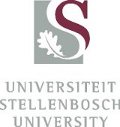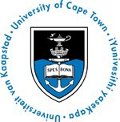
Workshops
Workshop 1: Distributed Digital Preservation for ETDs
Organisers: Martin Halbert, Gail Mcmillan, Matt Schultz
This workshop is designed to provide institutions with ETD initiatives with information about preserving Electronic Theses and Dissertation in a dark archive through the NDLTD/MetaArchive DDPN--distributed digital preservation network. Instructors will address important topics, including: What are academic institutions currently doing to ensure the long-term availability of their ETDs? What is distributed digital preservation? How can collaborative partnerships help us to securely preserve our ETDs? What is the MetaArchive Cooperative and how does its members interact? How can institutions best organize their ETDs for collection management purposes that also lead to sound preservation strategies?
Attendees will leave with an understanding of distributed digital preservation and of the roles their institutions may play in the NDLTD/MetaArchive preservation distributed digital preservation network.
Workshop 2: Data Curation
Organisers: Suzie Allard, Elsabé Olivier
Data curation in the context of theses and dissertations refers to the management of datasets collected and used in the course of the research. Currently, theses are the most successful form of publication managed by institutions themselves – but datasets are rarely part of the submission and archiving workflow. This workshop, the first ever for ETDs, will consider existing case studies, experiments and developments in the data curation community to investigate how best the workflows, policies and practices need to be changed to make data curation an integral part of existing and future ETD collections. The recent CODATA conference and the commitment of South Africa to data curation underscore the importance of this activity, which will be aimed at the implementation of data curation philosophies in the context of ETDs. The workshop will comprise presentations and discussions.
Presentations:
Suzie Allard, University of Tennessee/DataONE, USA
Edward Fox, Virginia Tech, USA
Lucia Lötter, HSRC, South Africa
Lynn Woolfrey, DataFirst, South Africa
Workshop 3: Lets get started! Creating Institutional Repositories using open source software
Organisers: Ina Smith, Hilton Gibson
Venue: E-Classroom, JS Gericke Library, Stellenbosch University
Maps: To Stellenbosch Campus - Campus Map
Accommodation
Transport has been arranged for delegates travelling between Cape Town and Stellenbosch on 16 and 17 September 2011, for purposes of the workshop.
Programme Friday afternoon & Saturday morning
During the past 5 years, there was a significant growth in libraries implementing institutional repositories, and it is still growing (http://www.opendoar.org ). Institutional repositories have been implemented to digitally preserve and archive the research assets of individual institutions, but also to provide open access to research conducted by members of the research communities from these institutions. The Open Access and Open Source Software movements have gained rapid momentum world over. Many institutions and organizations are setting up open access repositories using open source software, following open standards. There are a number of free open source software products available for developing digital libraries, and DSpace (http://www.dspace.org ) is one of the most popular software developed jointly by MIT Libraries and HP labs. DSpace is a digital asset management system. It helps create, index and retrieve various forms of digital content. DSpace is adaptable to different community needs. Interoperability between systems is built-in and it adheres to international standards for metadata.
This workshop is planned to meet the growing interest in implementing repositories using DSpace open source software, and to assist institutions who haven’t implemented or are in the early stages of implementing an institutional repository.




